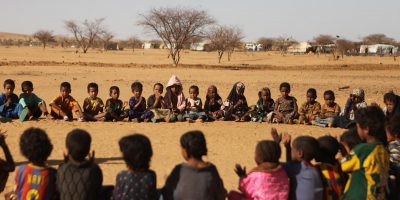In the wake of Hamas’s attack on Israel earlier this month, which led to the death of over one thousand Israelis, the U.S.-backed nuclear power has waged a campaign of brutal retribution. Since October 8, they have intensified the long-running siege on the Gaza Strip and initiated a bombing campaign that has killed more than seven thousand people, nearly three thousand of them children.
Over the weekend, I spoke with Darryl Li, who teaches anthropology and law at the University of Chicago, about the unfolding crisis in Gaza and some of its wider implications for the Palestinian struggle and the solidarity movement. Our conversation—which took place across a series of phone calls, voice notes, and text exchanges—covered a wide range of topics, including our own affective responses, political analysis of the situation on the ground, and media criticism. But throughout, we grapple principally with universalism as a racializing structure of discourse.



